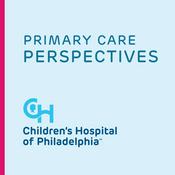Did you know that in the early 1900’s, a dentist figured out that people who had high levels of fluoride naturally occurring in their water supply had very low rates of tooth decay? This led to further research and ultimately community-wide fluoridation programs. Today, many places have fluoride in the water, toothpaste, and applied topically by the dentist or pediatrician. In this episode, we talk about topical fluoride dental varnish with Brian Jenssen, MD, MSHP, a CHOP researcher with Clinical Futures and the Possibilities Project, whose QI project on fluoride varnish was published in Pediatrics in October 2025. While fluoride continues to be a hot topic in the news, learn from Dr. Jenssen why we should embrace it in pediatric primary care.



